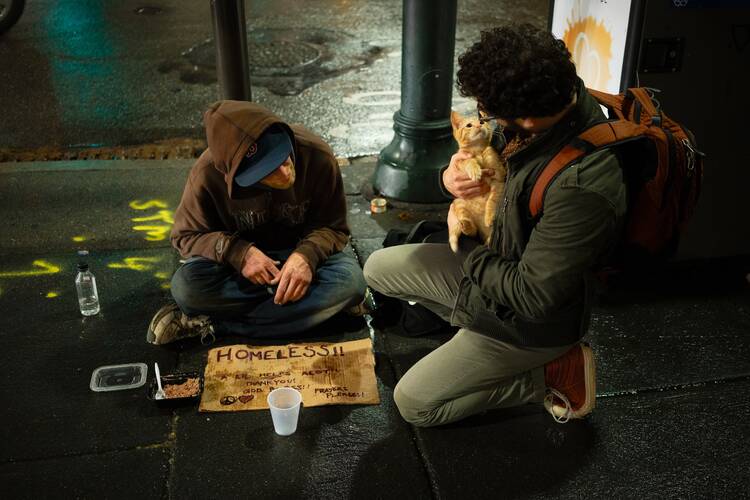We must remember to respond to the cries of the oppressed
The readings for the Thirtieth Sunday in Ordinary Time inspire us to be introspective and self-critical. They also are reminders to evaluate how we live and how we help to support those who are vulnerable and most in need.
“He hears the cry of the oppressed” (Sir 35:16).
How do you pray from a spirit of honest self-knowledge?
What can you do to respond to the needs of those who are oppressed?
For what do you need forgiveness?
In the Gospel reading from Luke, we encounter prayers from two different people:
“O God, I thank you that I am not like the rest of humanity!”
“O God, be merciful to me a sinner.”
The first prayer seems almost like a caricature of someone praying so intently and yet missing so much. This person has certainly missed his own shortcomings and instead highlights the problems of others. Rather than reflecting on areas he needs to improve, this person focuses on the ways that others have sinned.
The second prayer is a request for divine mercy that acknowledges personal failures. This person shows contrition by beating his breast, and he implores God to show him compassion. His posture and his words reflect humility, which the first person was clearly lacking. As we contemplate today’s Gospel, we should think about ways we can be self-critical and contrite in our prayers.
Reflecting on these readings about prayers can inform our own prayer life, as we are called to recognize our shortcomings and ask for God’s guidance and help.
The first reading also focuses on prayer, as God hears the prayers of those who are most in need. God is called a God of justice who “hears the cry of the oppressed.” Likewise, God hears the prayers of those who serve others. As we have seen in past readings, vulnerable groups such as orphans and widows are highlighted as receiving special divine care because they are frequently on the peripheries of society, lacking access and resources needed for advancement. In addition, the reference to the widow’s complaint and the image of God judging justly calls to mind the widow in last Sunday’s Gospel and her persistence in seeking justice.
Reflecting on these readings about prayers can inform our own prayer life, as we are called to recognize our shortcomings and ask for God’s guidance and help. Yet we are also reminded, especially in the first reading from Sirach, that we must work for justice. God’s compassion for the oppressed and openness to hearing their cries must inspire us to also hear their cries and respond accordingly. We must also remember to cry out for assistance if we are among the oppressed ourselves.
As we are in the midst of election season, justice should be at the forefront of our minds as we use our power at the ballot box. We must seek candidates who have put forth a vision of a society that supports and honors the needs of the poor, vulnerable and marginalized. And, as always, we must seek ways to serve those who are most in need.








